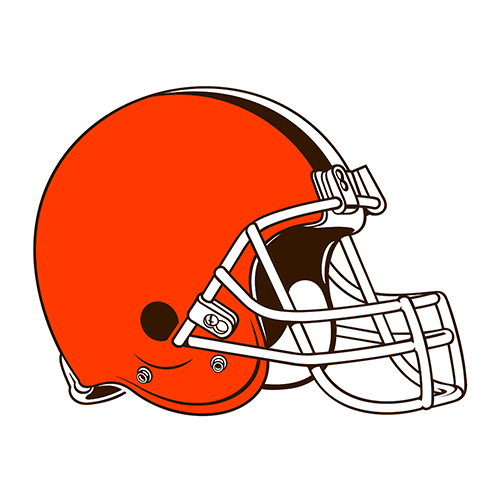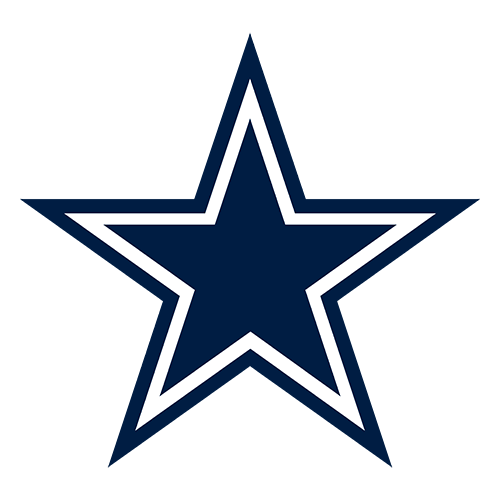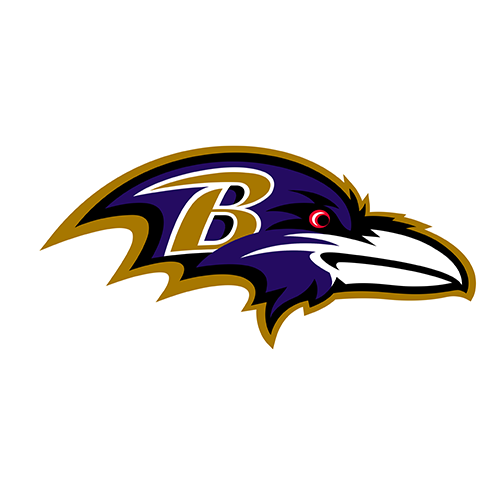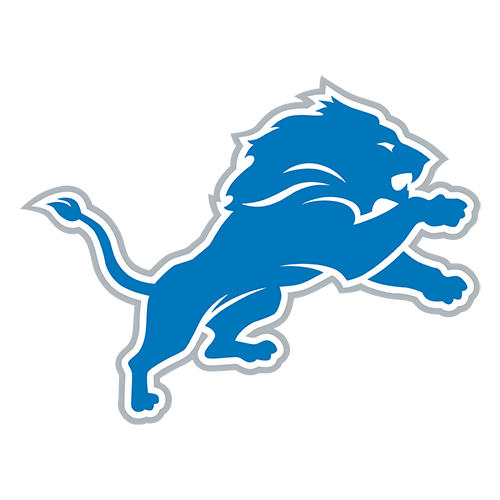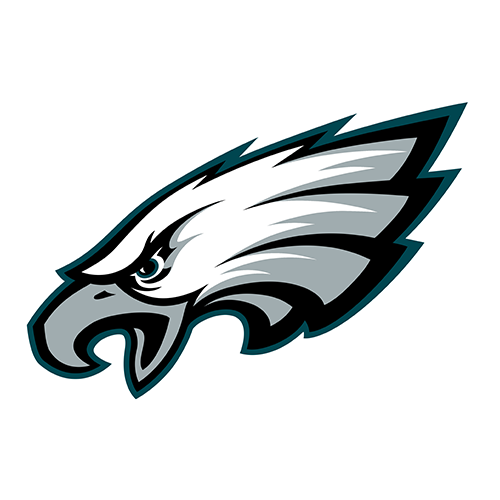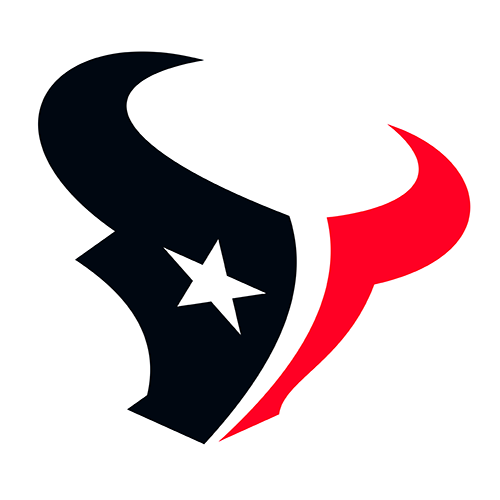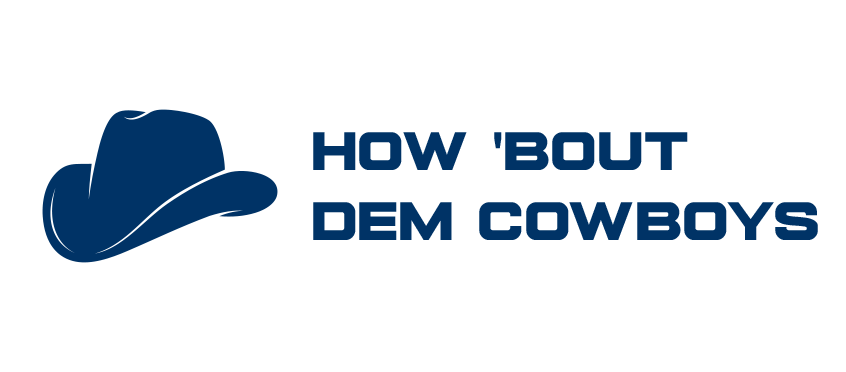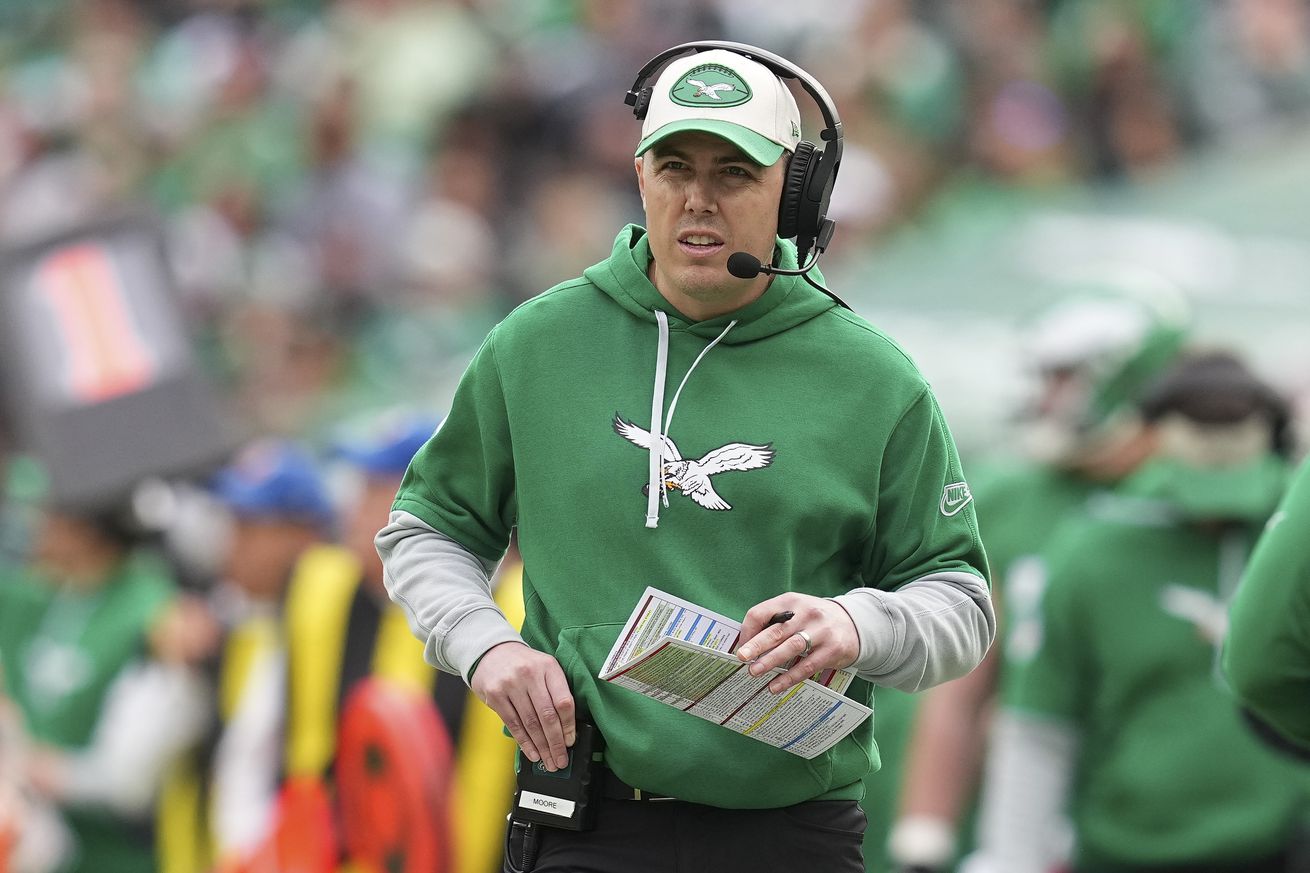
The prodigal son of Dallas is not what the Cowboys need right now
The Dallas Cowboys conducted a virtual interview with Kellen Moore for their head coaching vacancy last Friday, but the Eagles’ win on Sunday means that Jerry Jones will have to wait a little longer if he wants to hire his former offensive coordinator.
Our own Dan Rogers previously outlined why Moore should be the pick for the job, but it’s safe to say that the fan base is split on the idea. As a counterargument, here are three reasons why Moore is the wrong choice to lead the Cowboys in 2025.
Weaknesses as a play-caller still remain
The Eagles’ playoff game on Sunday was a perfect example of why the Cowboys shouldn’t hire Moore, and it’s not because he’s working for the enemy, although it does still feel wrong seeing him in that green. Simply put, Moore’s weaknesses as a play-caller from his Dallas days still remain.
Moore has become a more run-heavy play-caller in Philadelphia, though that’s mostly out of deference to head coach Nick Sirianni (more on that in a moment). In the game against the Rams, Moore’s offense morphed into the worst version of Moore’s worst tendencies.
The pass game became static and Moore was completely at the mercy of his run game, powered by Saquon Barkley, to move the ball. Barkley finished with 77 more rushing yards than Jalen Hurts had passing yards, and the Eagles finished the game with a stark difference in pass and run efficiency. Their 0.30 EPA/run was one of their best marks all year, while their -0.12 EPA/dropback was utterly abysmal.
Two moments in the game reminded everyone about Moore’s lack of situational awareness as a play-caller.
The Eagles had been pinned back to their own eight and Hurts, who had been in the medical tent with a knee injury after the previous drive, came out for this series. Moore called a run play on first down, but went with a deep drop pass play on second down. His offensive line, which had already given up five sacks on the day, gave up another and Hurts was sacked in the endzone for a safety.
Much later in the game, the Eagles had the ball up six with 2:48 left. They needed to grind out the clock as much as possible, and everyone expected them to lean on Barkley once again. After a first down run, though, Hurts rolled out on a play-action bootleg that freed nobody up. Hurts was sacked, and the Rams used their second timeout.
It was a risky call, first and foremost, but it was poor situational awareness even with the Rams being forced to use their timeout because it made a first down – something the Eagles needed on that drive to ensure the win – virtually impossible after the sack. As it turned out, the Rams got the ball back and came dangerously close to winning the game, bailed out by a timely sack.
Nobody doubts Moore’s brilliance, and when his scheme is clicking it’s a beautiful thing to watch. But his Cowboys offenses fell into a rut all too often, and this most recent game served as a warning that he still hasn’t figured out how to overcome it.
Deferential nature a bad fit with Jerry Jones
At the end of the day, the biggest factor in a new head coach will come down to their relationship with Jerry Jones, which is why Moore is considered the favorite by some. But what the Cowboys want and what they need in a head coach are two different things.
The Cowboys need a coach who is willing to challenge Jones on certain issues, but do so in a way that isn’t so confrontational that it turns Jones off entirely. McCarthy started to figure this out too late, getting his analytics department after three years and getting the OK to phase Ezekiel Elliott out of the offense halfway through this past season.
Moore, on the other hand, has proven to be largely deferential as a coach.
This can be seen most directly in how he has used pre-snap motion throughout his career. When Moore first took over the Cowboys offense, he talked a lot about the advantages of using motion before the snap, and the Cowboys came out firing that year. Over the first three games of 2019, Dallas ran motion on 69.2% of their plays; they also jumped out to a 3-0 start.
However, there were comments from both Jason Garrett and Jerry Jones regarding the offense after that, mostly concerning how stable such an approach was. Suddenly, the offense changed, and they used motion on just 60.4% of their plays for the rest of the year, a staggering decline.
Each of the next three years with Moore running the offense, Dallas declined more and more each year in motion rate, never rising above 55.8% for the year. When Moore departed for the Chargers, where he was the highest-ranking offensive coach on the staff, motion usage shot up to 69.8%, almost exactly where it had been in Moore’s first three games as a play-caller.
This past year, Moore arrived in Philadelphia and started calling the offense under Eagles head coach Nick Sirianni. Throughout Sirianni’s three seasons leading the Eagles, which saw three different play-callers prior to Moore, the offense had rarely used motion compared to the rest of the league. That trend continued despite Moore’s clear preference for it, as Philadelphia’s 57.5% motion rate ranked 21st in the league, the lowest that one of Moore’s offenses has ever finished.
This is only the most easily identifiable example, but Moore has a history of being overly deferential to others when it comes to his scheme and core philosophies. That’s not a trait that will help the Cowboys succeed given the current ownership structure.
A return to the Jason Garrett/Scott Linehan era
It’s easy to draw parallels between Moore and Garrett, and there’s a reason for that. Garrett remains a huge influence on Moore, as does Moore’s predecessor, Scott Linehan. The offensive coordinator that Moore replaced goes back a long way with the coaching candidate.
When Moore was growing up in Prosser, Washington, Linehan was the offensive coordinator for the University of Washington. Via the recruiting circuit, Linehan got to know Moore’s father, a longtime high school head coach in Prosser. Linehan was off to the NFL by the time Moore was playing high school football, but the families remained close.
It played a part in Moore signing with the Lions as an undrafted free agent back in 2012, joining up with Linehan, then the Detroit offensive coordinator. Moore, of course, followed Linehan to Dallas and then jumpstarted his career. Moore has remained close with Linehan even after replacing him, and Linehan – who spent this past season as an offensive analyst for the University of Montana – served in the same role the last three seasons at Missouri, where Moore’s brother Kirby is the offensive coordinator.
The lasting influence of both Garrett and Linehan is present even in the staff Moore has kept around him. Doug Nussmeier, a longtime college coordinator who played quarterback for Linehan at Washington, has been Moore’s quarterbacks coach every single year he’s been a coordinator. On top of that, Kyle Valero reunited with Moore in Philadelphia this year after having assisted with receivers for the bulk of Garrett’s time as head coach; Valero remained in Dallas up until Moore’s departure.
Hiring Moore would certainly draw praise from some around the league, as his star has been rising for some time, and he’s likely to do okay for himself in Dallas too. But Moore’s head coaching career is likely to unfold in much the same way that the Garrett era did, which is to say he won’t live up to the standard that so many fans have for this team.
If that’s the case, then what was the point of moving on from McCarthy, or even Garrett, for that matter? The Cowboys would be better served by going out of their comfort zone and taking a swing with their head coaching hire.
